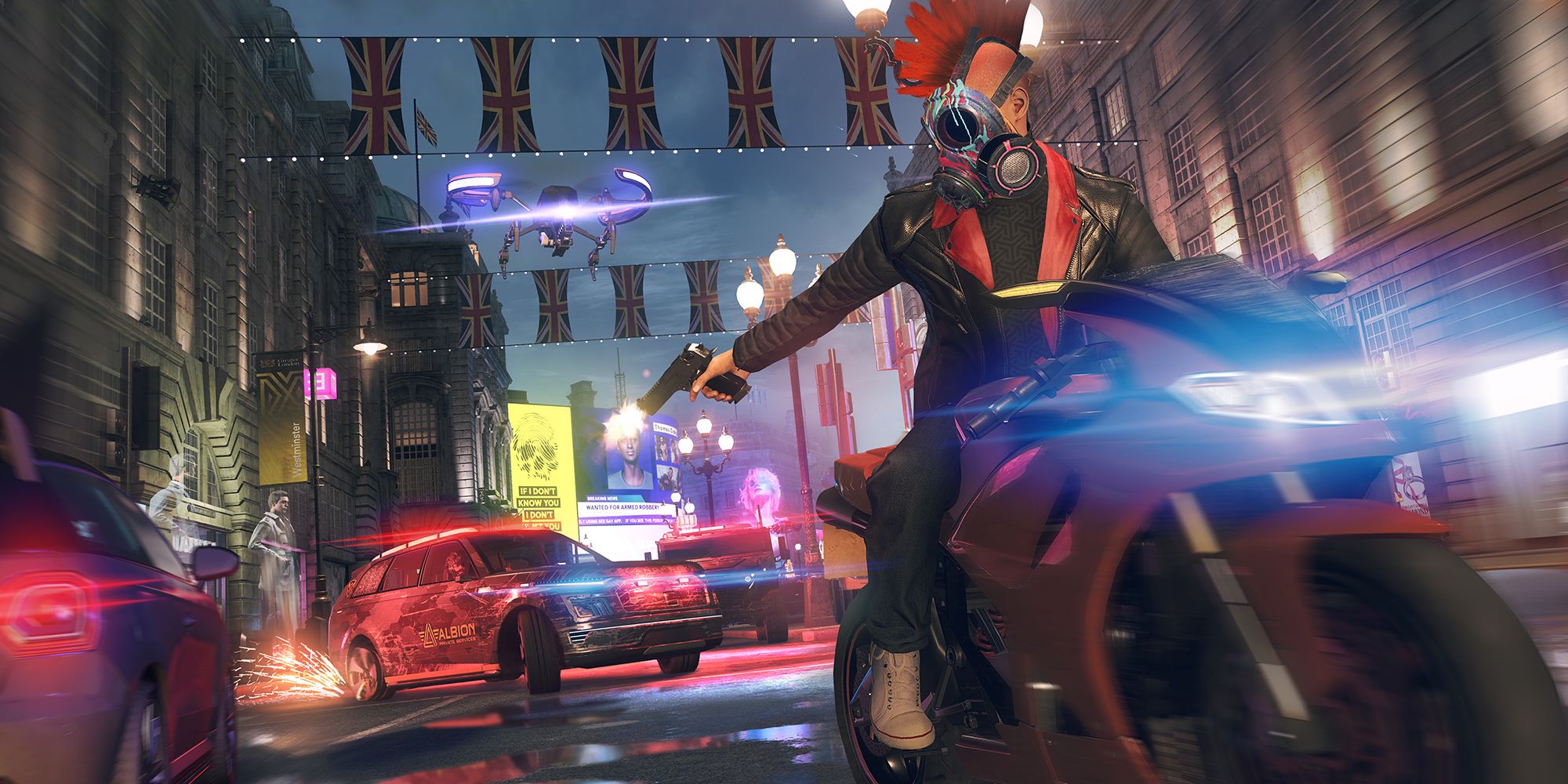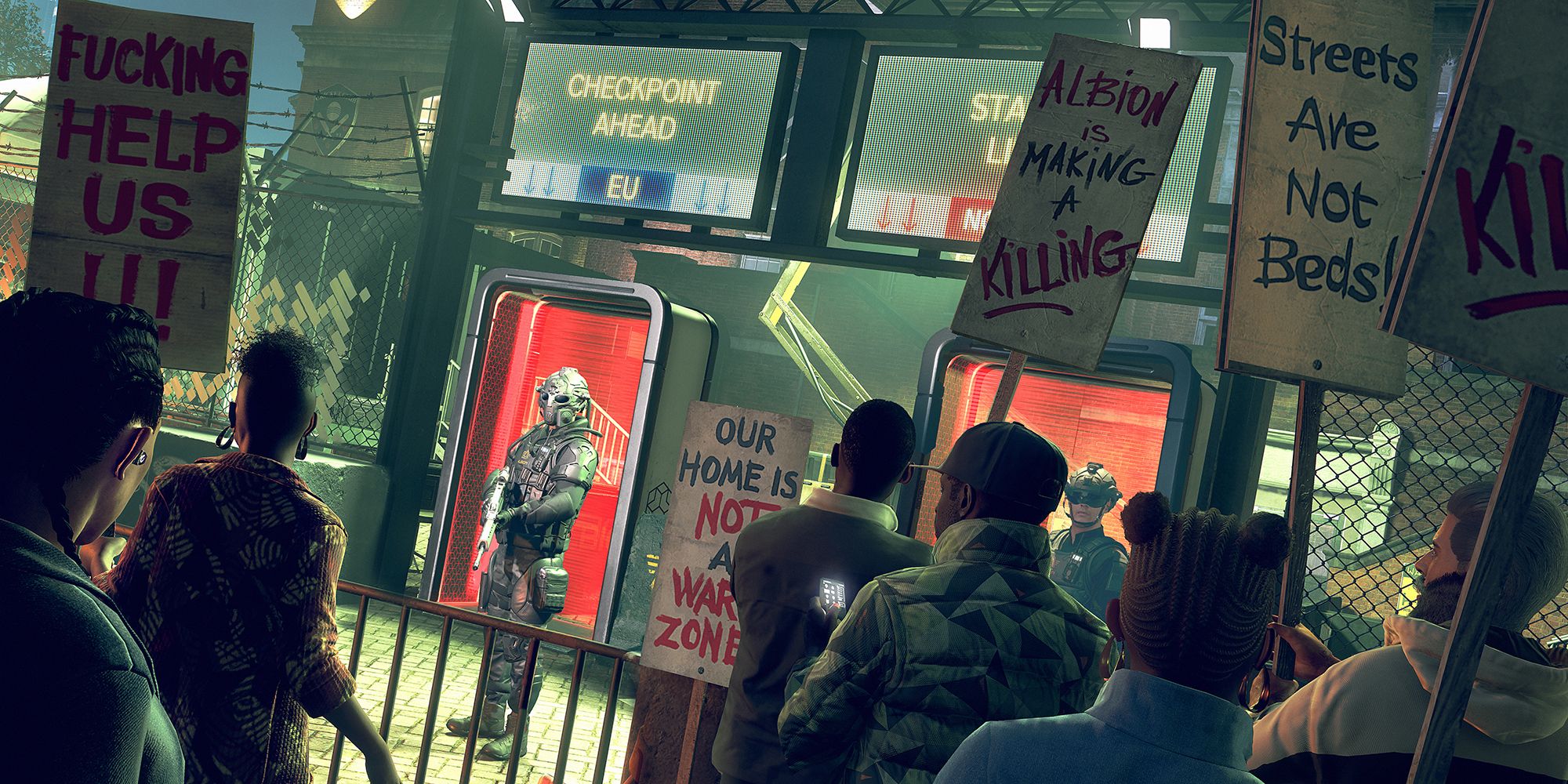Recent comments by Ubisoft's Tommy Francois about the nature of politics in Ubisoft games raised a few eyebrows. The VP of editorial talked about Ubisoft's hands-off approach to political messages in a recent Ubisoft Q&A, stating that rather than providing a commentary of its own, Ubisoft games aim to provide "more freedom for the players" by giving "players all the information we can."
In some ways, this could be seen as a noble goal, by using the medium to showcase a variety of worlds and viewpoints, but this approach has backfired in some cases. Far Cry 5 is a prime example of a game that looked like it could lead to some intriguing discussions, before its more interesting - and dare it be said, political - elements were lost in toilet humor and an inability to truly delve into the cult of its antagonists. A game that could be even more challenging in this regard is the just-announced Watch Dogs Legion.
Watch Dogs Legion has been framed as a political game from its very core - something that creative director Clint Hocking has been clear to point out. Speaking with IGN, Hocking explained "I believe that it's our responsibility as creators of culture to talk about stuff that's real, and that matters to people." In the case of Watch Dogs Legion, this is a post-Brexit Britain stuck in a dystopia of privatized security. The fingerprints of creeping authoritarianism are all over the game, and all too visible within its early trailers and screenshots.
Brexit is a real part of the game, set in a version of London where the country has made that split away from the European Union. For Watch Dogs Legion, this means that the game can discuss if not Brexit itself, at least the wider issues going on in the world through the lens of a future Britain where the split from the EU has gone wrong. Legion will focus on "the causes of Brexit," and use this as a frame for wider discussions of the rise of authoritarianism and "economic problems."
As such, it seems as though Hocking's direction for Watch Dogs Legion does not quite align with the wider comments of Ubisoft as a whole. However, this isn't necessarily a bad thing. By framing Watch Dogs Legion in such a contemporary way, it's impossible to keep that detached focus entirely, and instead by embracing those discussion points it could leave Watch Dogs Legion as a much more interesting and enthralling game to play.
The scars of the current political climate are all over the setting of this game. In Watch Dogs Legion, the British government has nearly collapsed; in real life, the UK is just about get its third Prime Minister since 2016. In Watch Dogs Legion, mass protests are taking part in the streets; in the real world, one million people took to London in an anti-Brexit march. In Watch Dogs Legion, drones have invaded privacy and disrupted everyone's lives; in real-world Britain, drones shut down one of the biggest airports during the holiday season. And that's without going into the pig-masked Dedsec character and what - ahem - notorious UK political news that could potentially be aping.
If Watch Dogs Legion ignores its place here, and shuffles back towards that aimless ground of Far Cry 5, then it may find itself with much less bite. Brexit has already proved a successful place for fantastic games, as showcased by indie darling Not Tonight, and the bombastic and activist nature of Watch Dogs in general could be the perfect place to cast an eye over the current climate. Since the game has a mechanic that turns anyone into a hero, why not get the player to truly feel like they are part of something revolutionary?
Looking for more E3 2019 coverage, such as the new Rainbow Six Quarantine co-op game? Head on over to our E3 hub.
Source: IGN


